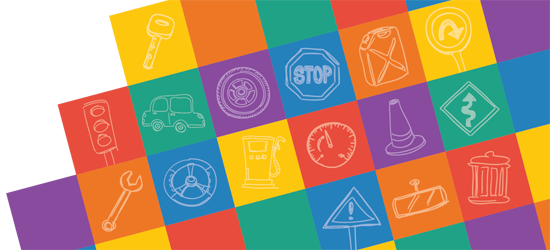
Buying a used car: 10 things to keep in mind
Buying a used car might make you a bit nervous, but don’t worry! Use our 10 tips to help you avoid common mistakes and make sure you pay the right price for your new set of wheels.
-
Do your research
Use the internet to do your research and find out everything you can about your potential next car.
Look for what the insurance and fuel costs will be, how much road tax you’ll have to pay and whether there are any common faults with this type and age of car that you should look out for.
-
Compare the price
Looking at similar cars for sale is a great way to make sure you are paying the right price. Bear in mind the factors that can affect value like condition, mileage and location. You can also use an online valuation tool so give you a guideline price.
-
Check out the seller
Check our pros and cons of dealers vs private sellers
Whether you’re buying a car from a private seller or a dealer there are a few things you can do to make sure the person you are dealing with is legitimate:
- Make sure their phone number isn't on multiple listings
- Don't agree to meet somewhere other than their house
- Is their name on the logbook? This isn't PROOF but it helps.
-
Get an HPI check
You're thinking, 'What the flip is an HPI check and exactly why do I need one?'
The HPI holds loads of data about all the vehicles registered in the UK, and for around £20 they'll give you a report that tells you things like whether the car has a logbook loan on it or if it's been reported as stolen or written off.
-
Look carefully at the car
Duh? Yes, but take time to look at the car in detail. If you’re not sure what you should be looking for, print out our used car value checklist and take it along with you to make sure you don’t miss anything important.
-
Check the mileage
Is the mileage consistent with the wear and tear on the car? Does it fit with the paperwork provided? If in doubt, just walk away.
-
Check the paperwork
There are 3 vital pieces of paperwork you need to check:
- The V5C (logbook)
- The vehicle tax
- The MOT certificate for vehicles over 3 years old
Make sure that the registration number and chassis number match the car, and that the name and address match the person selling the vehicle.
-
Check the service history
It’s really important that the car has been properly looked after by its previous owners. That includes regular servicing at a franchised dealer, which should be recorded in the service history. There should also be receipts for any work that has been done.
-
Go for a test drive
It’s impossible to really get an idea of how a car performs without actually getting behind the wheel.
If you’ve not been driving for long you may not be sure what to look, listen and even smell for but you can use our list of tips for test driving a car to help you on your way.
Read our top tips for taking a car for a test drive.
-
Be a good buyer
Last but not least, be the kind of buyer you'd want!
Turn up on time for your viewing and make sure you’re in a position to pay for and collect the car quickly once you’ve made a decision. That means getting your finances sorted in advance - especially if you’re going to need a loan to fund the purchase.













No matter what advice you get online or any were else the best and surest way to buy a car is allways take someone who know exactly what there doing